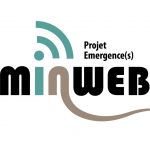Project : “An Analysis of the Management and Exploitation of Natural Resources in Conflict Situations: The Western Sahara Case”.
Funding: Ministry of Economy, Industry and Competitiveness.
Code: CSO2017-86986-P
Amount granted 38.720 EUROS
Period : 2018-2020
Principal investigator : Raquel Ojeda-García
Resume:
A previous research project “Territorial Policies and Processes of Colonization/Decolonization in Western Sahara” made several key findings, including the end of the stalemate in the conflict and an evolution in the involvement of the actors in the form and content of the claims being made. These new forms of approaching the Sahrawi people’s sovereignty over their land have been constructed upon the recognition of their right to use and exploit the natural resources there. According to international legislation, Western Sahara is a non-self-governing territory under occupation by Morocco, which is exploiting and managing these resources (fisheries, agriculture and phosphates).
The project is designed to answer three questions:
1) what brought about this change in the Sahrawi people’s claims to their right to self-determination –something traditionally managed by the Polisario Front– towards increased demands and a greater defence of their right to exploit the natural resources in their territory or, a least, to be consulted and benefit from the operating profits?
2) why did this change occur?
3) what actors have intervened in and/or benefitted from this process?
OUISO members involved in the program :
Isaías Barreñada
Joanna Allan
Vivian Solano
Sébastien Boulay
Raquel Ojeda-García
Angela Suárez Collado

